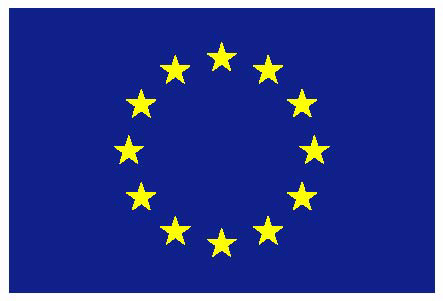EU Horizon 2020 Sea Change
CoExploration is participating in the European Union’s Horizon 2020 Blue Growth program the Sea Change Project. CoExploration works with 16 European organizations who are partnered on this 3 year project. Sea Change is led and coordinated by the Marine Biological Association in Plymouth, England.
The overarching goals of the Sea Change project are to bring about a fundamental “Sea Change” in the way European citizens view their relationship with the sea, by empowering them – as ‘Ocean Literate’ citizens – to take direct and sustainable action towards healthy seas and ocean, healthy communities and ultimately – a healthy planet.
Key objectives of Sea Change are to:
- Compile an in-depth review of the links between Seas and Ocean and Human health based on latest research knowledge outputs.
- Build upon the latest social research on citizen and stakeholder attitudes, perceptions and values to help design and implement successful mobilisation activities focused on education, community, governance actors and directly targeted at citizens. marine education.
- Build upon significant work to date, adopting best practice and embedding Ocean Literacy across established strategic initiatives and networks in order to help maximise impact and ensure sustainability.
- Ensure that efforts to sustain an Ocean Literate society in Europe continue beyond the life of Sea Change through codes of good practice, public campaigns and other ongoing community activities.
- Ensure that all activities of Sea Change are carefully monitored and evaluated to ensure maximum sustainability, effectiveness and efficiency.
- Ensure Knowledge exchange with transatlantic partners to bring about a global approach to protecting the planet’s shared seas and ocean.
- The objectives will be achieved by a closely interlinked programme. Sea Change includes a mobilisation phase engaging with citizens, formal education and policy actors. Crucially the legacy of Sea Change, including continuing knowledge sharing with North America, are embedded within the project.
Partners include:
AquaTT www.aquatt.ie
UK Government THE SECRETARY OF STATE FOR ENVIRONMENT, FOOD AND RURAL AFFAIRS aka CEFAS www.defra.gov.uk
NATIONAL UNIVERSITY OF IRELAND GALWAY www.nuigalway.ie
GOETEBORGS UNIVERSITET Department of Education, Communication and Learning www.gu.se
VLAAMS INSTITUUT VOOR DE ZEE VZW vliz.be
FONDATION EUROPEENNE DE LA SCIENCE www.esf.org work by European Marine Board www.marineboard.eu
ASSOCIATION EUROPEENNE DES EXPOSITIONS SCIENTIFIQUES, TECHNIQUES ET INDUSTRIE www.ecsite.net
European Association of Geographers http://www.eurogeography.eu
DANMARKS TEKNISKE UNIVERSITET www.dtu.dk www.aqua.dtu.dk
CIENCIA VIVA-AGENCIA NACIONAL PARA A CULTURA CIENTIFICA E TECNOLOGICA www.pavconhecimento.pt and cienciaviva.pt
CLIMAR – Centro Interdisciplinar de Investigação Marinha e Ambiental – Coastal Biodiversity Research Group www.ciimar.up.pt
UNITED NATIONS EDUCATIONAL, SCIENTIFIC AND CULTURAL ORGANIZATION –UNESCO ioc.unesco.org
HELLENIC CENTRE FOR MARINE RESEARCH http://www.hcmr.gr
RESEAU OCEAN MONDIAL AISBL www.worldoceannetwork.org
SUBMON: Divulgació, Estudi i Conservació de l’Entorn Natural www.submon.org
COEXPLORATION LIMITED http://www.coexploration.co.uk

This project has received funding from the European Union’s Horizon 2020 Framework Programme for Research and Innovation (H2020-BG-2014-1) under grant agreement No. 652644. This publication/multimedia product/presentation reflects the views of the author, and the European Union cannot be held responsible for any use which might be made of the information contained therein
